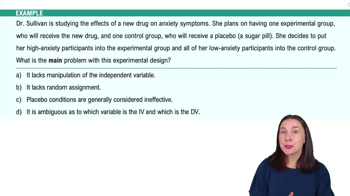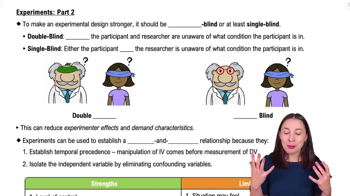Table of contents
- 1. Introduction to Psychology1h 43m
- 2. Psychology Research2h 20m
- 3. Biological Psychology2h 41m
- 4. Sensation and Perception28m
- 5. Consciousness and Sleep32m
- 6. Learning1h 26m
- 7. Memory34m
- 8. Cognition37m
- 9. Emotion and Motivation35m
- 10. Developmental Psychology1h 20m
- 11. Personality1h 17m
- 12. Social Psychology1h 18m
- 13. Stress and Health41m
- 14. Psychological Disorders1h 27m
- 15. Treatment1h 24m
2. Psychology Research
Intro to Research Methods
Struggling with Psychology?
Join thousands of students who trust us to help them ace their exams!Watch the first video
Intro to Research Methods Example 3
Hannah Gordils
Video duration:
1mPlay a video:
Related Videos
Related Practice








